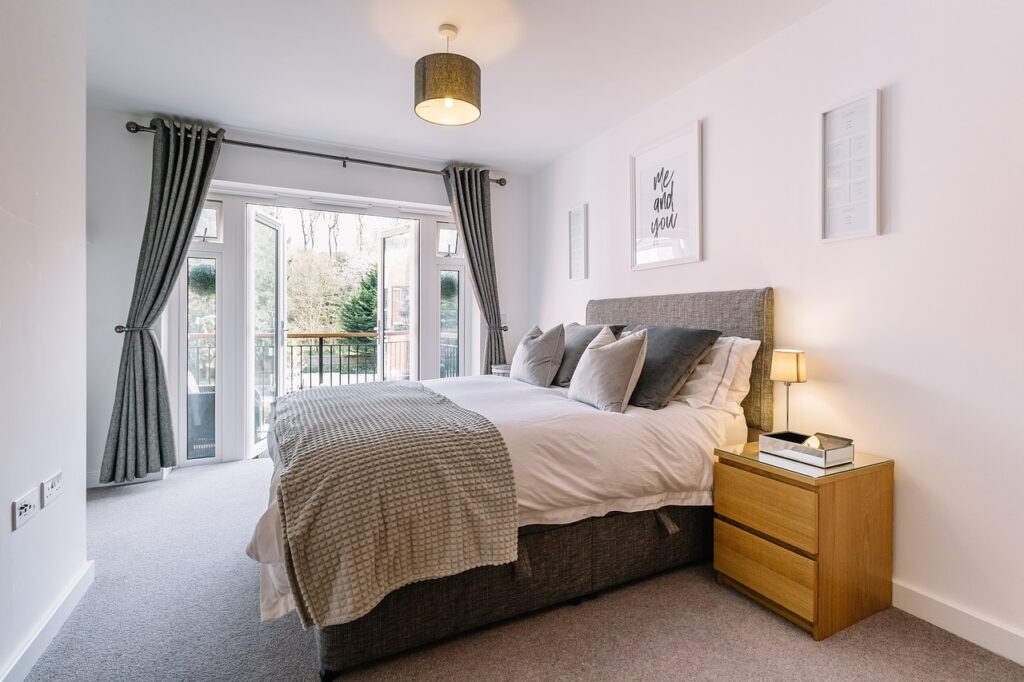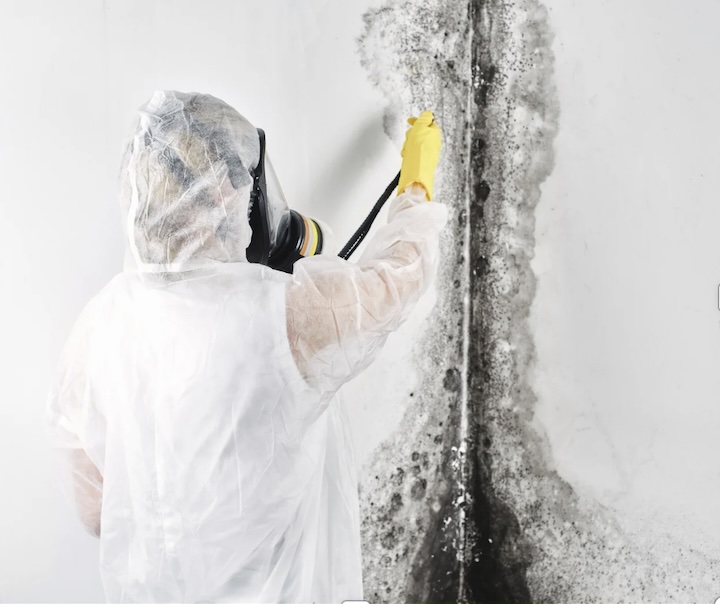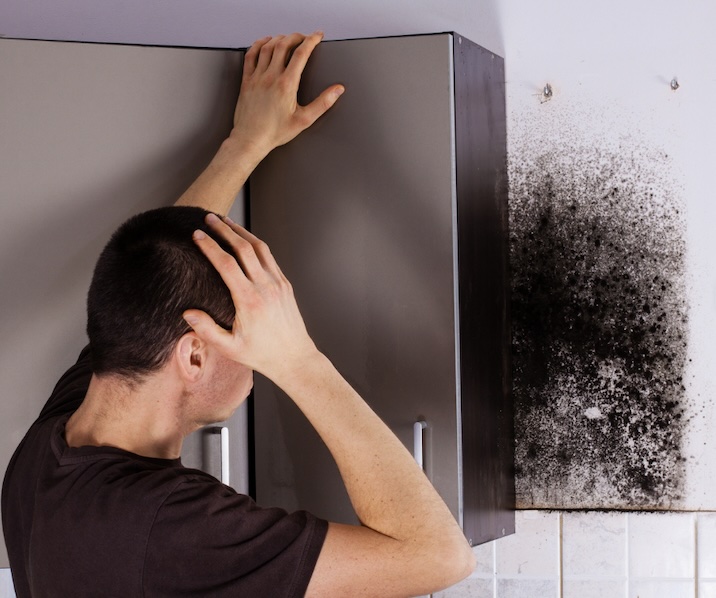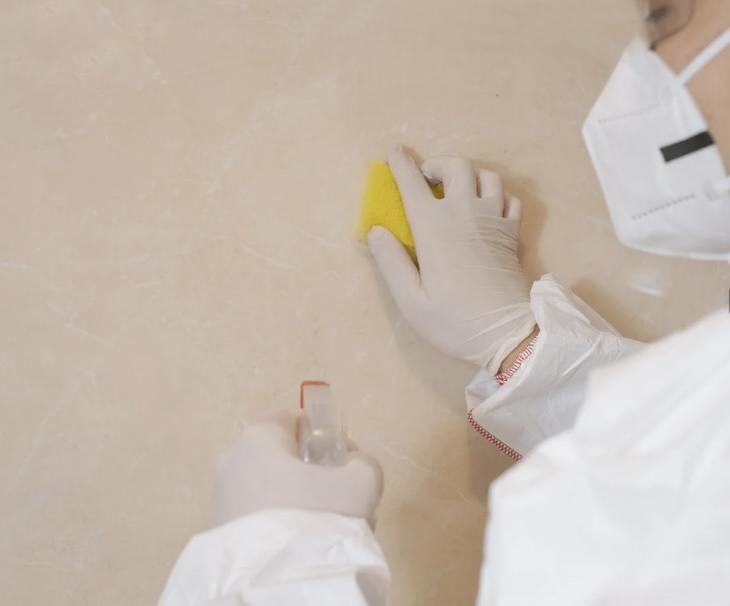When it comes to getting a good night’s sleep, many people consider factors like room temperature, noise, and bedding quality. But one often-overlooked culprit that can interfere with restful sleep is mold. Mold is not just a structural issue—it can lead to health issues, particularly impacting the respiratory system, which may ultimately disrupt your sleep. Here’s a closer look at how mold in your home can affect your sleep and what you can do about it.

1. How Mold Impacts Indoor Air Quality and Sleep
Mold releases tiny spores into the air, which are often invisible to the naked eye. When these spores are inhaled, they can irritate the respiratory system, especially for those with allergies, asthma, or other respiratory conditions. Common reactions to mold spores include sneezing, coughing, congestion, and even headaches—all of which can make it harder to fall asleep or stay asleep throughout the night.
Common Sleep-Related Symptoms of Mold Exposure:
- Persistent nasal congestion and sinus pressure
- Wheezing or shortness of breath
- Waking up with headaches or fatigue
- Itchy or watery eyes
- Skin irritation
2. Why Mold in the Bedroom Is Particularly Harmful
Mold can be present in any part of the home, but mold in the bedroom is especially problematic for sleep. Bedrooms often have furniture, mattresses, and carpets that can absorb moisture, providing a breeding ground for mold growth if not properly maintained. Furthermore, since we spend a third of our day in the bedroom, prolonged exposure to mold in this room can significantly impact your health.
Signs of Mold in the Bedroom:
- A musty smell in the room
- Visible black, green, or white spots on walls, ceilings, or around windows
- Condensation buildup on windows or in corners
- Damp or humid feeling in the room
3. Sleep Issues Linked to Mold Exposure
The symptoms of mold exposure can vary from mild to severe, depending on individual sensitivity. For some people, mold exposure leads to symptoms similar to allergies, while others may experience more severe reactions. Here’s how mold can disrupt your sleep:
- Allergic Reactions: Continuous sneezing, coughing, and congestion make it difficult to fall asleep and stay asleep.
- Respiratory Issues: Mold exposure can worsen asthma or cause shortness of breath, making it uncomfortable to breathe deeply while lying down.
- Skin Irritation: If mold spores come into contact with the skin, they can cause itching, which may further interfere with relaxation and rest.
- Mental Health Impacts: Constant health issues from mold exposure can lead to anxiety and stress, both of which are linked to poor sleep quality.
4. Tips to Manage and Prevent Mold-Related Sleep Disruptions
If you suspect mold is causing your sleep issues, it’s important to take action to reduce your exposure and improve indoor air quality. Here are some steps you can take to reduce mold and its impact on your sleep:
- Keep Humidity in Check: Mold thrives in moist environments. Use a dehumidifier to maintain indoor humidity levels between 30-50%, which is ideal for preventing mold growth.
- Ventilate Your Space: Ensure proper ventilation in areas prone to moisture, such as bathrooms, kitchens, and bedrooms. Open windows on dry days or use fans to circulate air.
- Clean Regularly: Dust and clean surfaces, especially in areas where moisture might accumulate. Regular cleaning can help reduce mold spore buildup on surfaces.
- Inspect for Leaks: Regularly check for leaks around windows, pipes, and under sinks, as leaks are one of the primary causes of mold growth.
- Use Air Purifiers: A quality air purifier with a HEPA filter can help capture mold spores, improving indoor air quality and helping you breathe easier at night.
- Address Visible Mold Promptly: If you spot any mold, clean it immediately with mold-killing cleaning products or seek professional remediation for larger infestations.
5. When to Seek Professional Help
If mold growth is extensive or located in hard-to-reach areas, it may be time to contact a professional mold remediation service. Professionals have the right equipment and expertise to identify and remove mold without spreading spores, which can otherwise worsen the problem. Professional remediation also includes identifying the root cause, whether it’s a plumbing issue, poor ventilation, or structural issue.
Mold isn’t just a household nuisance—it can be a genuine health hazard, impacting your respiratory health and sleep quality. If you’ve been experiencing unexplained sleep disturbances along with allergy-like symptoms, mold in your home might be to blame. By taking action to control mold, you’re not only protecting your home’s structural integrity but also safeguarding your health and improving your quality of sleep. Don’t let mold disrupt your nights—take steps today to ensure a cleaner, mold-free environment for better rest and peace of mind.



